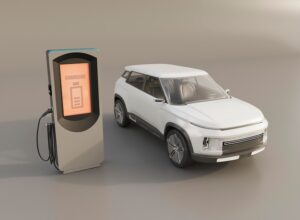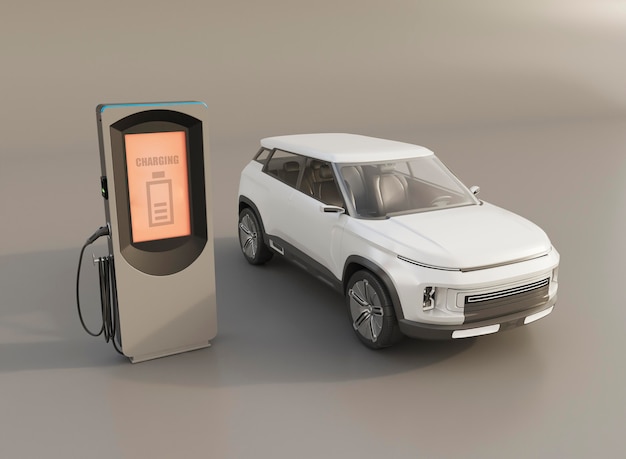
The automotive industry is undergoing a revolutionary shift towards sustainability, driven by the rise of electric vehicles (EVs) and the rapid advancements in charging technology. These innovations promise to reduce our reliance on fossil fuels, lower emissions, and create a cleaner, greener future. As electric vehicles become more mainstream, understanding the latest developments in EV technology and charging infrastructure becomes crucial. This article explores the world of electric vehicles and charging innovations, highlighting their impact, current trends, and future prospects.
The Rise of Electric Vehicles
To start with, electric vehicles have gained significant traction in recent years. Several factors contribute to their growing popularity, including environmental concerns, advancements in battery technology, and government incentives. EVs produce zero tailpipe emissions, making them a cleaner alternative to traditional internal combustion engine (ICE) vehicles. As a result, they play a vital role in combating climate change and reducing air pollution.
Moreover, automakers are investing heavily in EV development. Companies like Tesla, Nissan, and General Motors have introduced a range of electric models that cater to different segments of the market. From compact cars to luxury SUVs, consumers now have more choices than ever when it comes to electric vehicles. This increased variety has made EVs more accessible and appealing to a broader audience.
Advances in Battery Technology
One of the key factors driving the adoption of electric vehicles is the advancement in battery technology. Initially, the limited range and long charging times of EVs posed significant barriers to their widespread acceptance. However, recent breakthroughs in battery technology have addressed these concerns.
For instance, lithium-ion batteries, which power most modern EVs, have seen significant improvements in energy density and charging speed. These advancements enable EVs to travel longer distances on a single charge and reduce the time needed to recharge. Additionally, researchers are exploring new battery chemistries, such as solid-state batteries, which promise even greater energy density and safety.
Charging Infrastructure Innovations
Equally important to the success of electric vehicles is the development of robust charging infrastructure. Initially, the lack of charging stations deterred many potential EV buyers. However, this situation is rapidly changing. Governments and private companies are investing in expanding the network of charging stations, making it easier for EV owners to find convenient and reliable charging options.
Moreover, charging technology itself is evolving. For example, fast-charging stations can now recharge an EV’s battery to 80% in just 30 minutes, significantly reducing the downtime for drivers. Furthermore, ultra-fast chargers, which can deliver even higher power levels, are being deployed, promising to make long-distance travel in EVs more practical.
Home Charging Solutions
Besides public charging stations, home charging solutions have also seen significant advancements. Home chargers, also known as wall boxes, allow EV owners to charge their vehicles overnight conveniently. These devices are becoming more affordable and easier to install, making home charging a viable option for many consumers.
Additionally, smart charging systems are emerging, which can optimize charging schedules based on electricity prices and grid demand. This not only helps EV owners save money but also supports grid stability by reducing peak demand. As a result, smart home charging solutions represent a significant step forward in integrating EVs into the broader energy ecosystem.
The Future of Electric Vehicles and Charging
Looking ahead, the future of electric vehicles and charging innovations appears incredibly promising. Automakers are continuously pushing the boundaries of EV performance, range, and affordability. We can expect to see more advanced battery technologies, such as solid-state batteries, become commercially viable, further enhancing the capabilities of electric vehicles.
In parallel, the expansion and improvement of charging infrastructure will continue. Wireless charging technology, which allows EVs to charge without physical connectors, is already in development and could become a standard feature in the near future. Additionally, vehicle-to-grid (V2G) technology, which enables EVs to feed electricity back into the grid, holds potential for enhancing energy resilience and supporting renewable energy integration.
Conclusion
In conclusion, electric vehicles and charging innovations are driving us towards a sustainable future. The rise of EVs, coupled with advances in battery technology and charging infrastructure, is transforming the automotive industry and paving the way for a cleaner, greener world. As these technologies continue to evolve, electric vehicles will become an increasingly practical and appealing choice for consumers. By embracing these innovations, we can look forward to a future where transportation is not only efficient and convenient but also environmentally friendly. The journey towards this future is already underway, and it promises to be an exciting and transformative ride.
